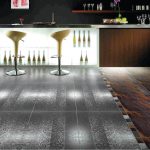
A designer begins his creation by visualizing an object and moulding the material to fit the image in his mind. A buyer sees the beauty and functionality of the final product and assesses how it will appear in his home.
more

A designer begins his creation by visualizing an object and moulding the material to fit the image in his mind. A buyer sees the beauty and functionality of the final product and assesses how it will appear in his home.

Nature is an enchanting source of inspiration for designers and only a few places in the world can offer the abundance of wildlife that enriches the National Wildlife Parks of Sri Lanka.

The ancient Chinese discovered the art of manufacturing “Porcelain”, a type of ceramic which became a much sought-after commodity of that era. The translucent, glossy characteristics of these products were compared to the surface of common sea shells, referred to as “Porcellana” by the Italians, from which the name Porcelain was derived. By Nandaka Jayasinghe […]

“History repeats itself in different ways.” After the nomadic age, human beings initiated living in permanent lodgings rather than moving from place to place.

Denmark has long been in the forefront of furniture design in the 20th Century producing attractive pieces distinguished by fine craftsmanship. Danish innovations with the chair, in particular, symbolise a fine harmony between function, comfort and style.

Seeking simplicity through a patiently practiced planning technique can best describe Japanese architecture. Japan today eagerly responds to 20th century architecture with a delicate transition from its early fascinating simplicity, responsiveness to nature and free sprit to an experimental and technologically advanced practice.

Discovered almost by accident, glass has played a major part in our lives as the transparent divider of spaces.